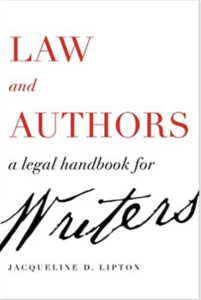
Some of the most common questions I hear from picture book biography writers:
Q: Do I need permission to write about somebody, living or dead?
A: Permission is technically not required if the biography subject is/was a public figure, unless their estate has created a kind of legal fortress. There are rare cases in which permission must be obtained before sharing any likeness or representation. You should be able to identify these restrictions by searching online. The first place to start might be a website dedicated to the person, or the organization that controls their “papers of” or “official collection of.”
First Amendment rights aside, consider appropriateness. Personally, I would feel offended if a writer didn’t attempt to get my perspective or clarification of facts before writing a book about me. We writers should always consider courtesy. Even with ultra-famous subjects, it’s usually worthwhile to attempt contact. Equally important is to consider the subject’s ethnicity, cultural or gender identity, otherly-abled status, etc. Writing about someone outside of one’s own experience is very often frowned upon.
Q: What is the definition of “public figure?”
 I reached out to Jacqui Lipton, literary agent and author of LAW & AUTHORS: A LEGAL HANDBOOK FOR WRITERS, which is chock-full of information about copyright, contracts, rights, social media—and everything in between, packed into thirteen enlightening chapters. Two chapters are dedicated to the sensitive topic of writing about someone else and avoiding defamation. In an email exchange, Jacqui offered this about “public figures”:
I reached out to Jacqui Lipton, literary agent and author of LAW & AUTHORS: A LEGAL HANDBOOK FOR WRITERS, which is chock-full of information about copyright, contracts, rights, social media—and everything in between, packed into thirteen enlightening chapters. Two chapters are dedicated to the sensitive topic of writing about someone else and avoiding defamation. In an email exchange, Jacqui offered this about “public figures”:
A: “There are legal definitions of “public figure” in the defamation context but they’re very complicated and fact-specific–and courts vary from time to time and jurisdiction to jurisdiction–and it’s all very specific to the First Amendment calculus in relation to defamation law . . . the question of what constitutes a public figure will vary from case to case.”
Ultimately, it depends. Do your homework to uncover possible restrictions. If there is no legal barrier, you might be able to proceed full speed ahead, assuming you determine that you are the right person to tell the story.
Q: Why should I try to contact my biography subject or their family if the person is/was famous and well-covered in other books, articles, etc.?
A: Quite simply, if you’re successful, you will get the most accurate information and most intimate perspective. Just as importantly, you might get a feel for the person’s personality and speech quirks that could influence your story’s voice and overall approach. On the topic of accuracy, errors might have been perpetuated through other sources, something I faced when researching The Great Blondin for KING OF THE TIGHTROPE. Because I reached out to Blondin’s great-great-grandson, who eagerly dipped into family records to aid my research, I was able to identify and avoid falsehoods that have been repeated in countless books and articles since 1861. Not only did I correct the historical record, but Blondin’s family provided me information not found in any other publication. And I made a new international friend in the process—someone still boosting the book.
A: Most biography subjects or descendants will be thrilled about your book and eager to provide you with information. In fact, they usually feel honored, especially when they find out you’re writing for kids. Such was the case with my forthcoming book WINGS OF AN EAGLE: THE GOLD MEDAL DREAMS OF BILLY MILLS, co-authored with Oglala Lakota Olympian Billy Mills, being illustrated by S.D. Nelson. Billy’s celebrity status meant that it took me a long time to finally gain access to him and his family. It was worth it! As we get closer to the publication date, I’ll share more about how direct communication with Billy turned into a joyous collaboration that morphed the project into an autobiographical picture book. As a non-Native writer, this collaboration with Billy was the absolute right decision. To do otherwise could have been viewed as a kind of appropriation.
For other examples of authors who successfully reached their celebrity subjects:
Read about Kate Messner’s journey with Dr. Fauci: How a Boy from Brooklyn Became America’s Doctor.
Read about Cynthia Levinson’s journey with Hilary Rodham Clinton: Do All the Good You Can
Q: What if I am unable to reach my biography subject or their close relatives?
A: Sometimes, your intended subject, or their representative, doesn’t respond to polite requests for an interview or Q&A. Celebrities and high-profile individuals can be especially tricky to contact, though you should certainly make the effort. If you decide you are still the right person to write the story, seek out people who know/knew them: relatives, co-workers, neighbors, etc.. And search for quality primary and secondary sources that are exceptionally reliable. Documented interviews with your biography subject can reveal feelings, experiences, and direct quotes. At every step of the process, you should gut-check your decision. How will the biographee or their loved ones react to your unauthorized biography? The subject might be considered fair game, but make sure you are playing the game fairly.
Q: Are there potential downsides to contacting my biography subject or their family?
A: Possibly
—A biographee or their descendant could explicitly ask you not to write the book, in which case you should NOT write the book.
—They could respond with a vague “no thank you,” leaving you to decipher the underlying message. This happened to me. After many unanswered follow-up emails to a potential subject, my agent and I decided it would be unwise to proceed with my project.
—They could reveal that they are already working with somebody else on a book like yours. That doesn’t mean that you can’t also write a book about them, but the first author will have the authorized biography, which will almost certainly get the most attention. You must decide if it’s worth your time to write a book that will likely be overshadowed.
—They could agree to cooperate while assuming that they have creative control over the storytelling in your book. This could be tricky. You must graciously discuss boundaries and expectations upfront.
Q: If my biography subject says no, can I write the book anyway?
A: Technically…yes. As I alluded to earlier, you might have the First Amendment on your side, but you need to decide if it is wise to go against the person’s specific wishes. Assume that everyone has a big platform or access to media machines. I’m not a lawyer and can’t speak to legalities, but I can imagine nightmare scenarios in which the biographee or their relatives are angry enough to discredit an unauthorized book and its author. Is that likely? Maybe not, but I think it’s wise and just to air on the side of courtesy and respect.
Writing about someone else can be a rewarding experience, but we writers should never forget that our subjects are/were real people. They deserve respect, on and off the page.
A few additional sources about fair use and copyright:
“A Writer’s Guide to Fair Use and Permissions + Sample Permissions Letter” by Jane Friedman https://www.janefriedman.com/sample-permission-letter/
“A Writer’s Guide to Fair Use” by Howard Zaharoff: https://www.morse.law/news/writers-guide-to-fair-use/
“Twelve Common Copyright Permission Myths” by Lloyd J. Jassin


Someone I no has taken it to far to write a srltory on my life and I infact can say stolen slot of thing aka phones laptops extra and even told my son’s dad she is related to get the info on my life I also am bullyed by this girl regards to both of us taking drugs she is waiting to gain moni to buy house she can cnot afford my life story would infact be interested to eny writer to sell how can I stop this and how can I prevent her selling as she has infact made my life hel to the point she has taken the time to follow me around to spike my drugs to Billy my I’ll sister my dad and nan she bring up to upset me this has been a big nastey experience can u help me on advice please as I would like to stop her publishing it.menny thanks Donna Lou Louise Cheadle Richardson
This sounds like a legal question. You might consider talking to a lawyer.
The story that I’d like to tell is someone from 57 years ago who had died since she was 18, I doubt that anyone of her family is still alive. Beside, I don’t remember any of their names at this point. They also lived in a different country – I immigrated into the U.S.A. 52 years ago. But I really want to write this story (it would be a short story of not more than 5,000 words). If I change the setting without compromising the real circumstances, would I be liable for defamation?
If you fictionalize it, as long as you are not defaming the person, it might be okay, but you should consider it carefully I recommend reading Law and Authors, by Jacci Lipton. https://www.amazon.com/Law-Authors-Legal-Handbook-Writers/dp/0520301811/ref=sr_1_1?crid=3D94OTSB9WNOX&keywords=Authors+and+the+law&qid=1668111658&sprefix=authors+and+the+law%2Caps%2C101&sr=8-1&ufe=app_do%3Aamzn1.fos.006c50ae-5d4c-4777-9bc0-4513d670b6bc
Good luck!